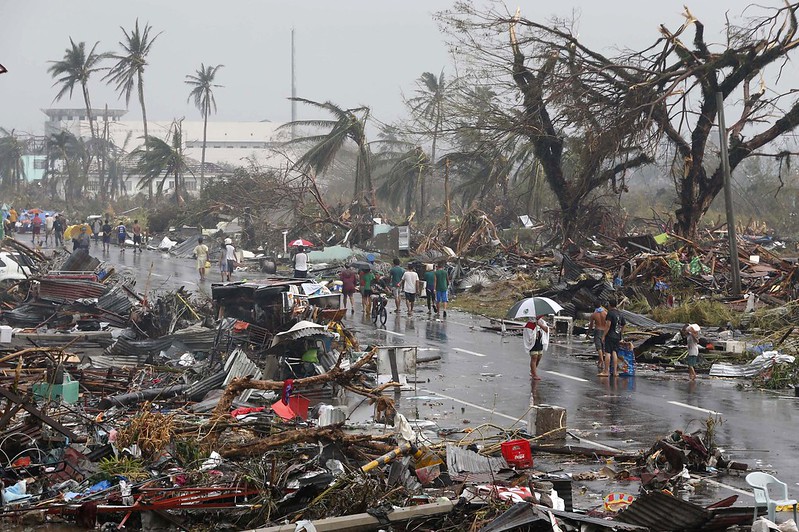Careless Development Models in Yolanda’s Wake

Introduction
On 8 November 2013, one of the strongest storms on record swept through the Pacific, leaving a broad scar of untold devastation in its wake. Supertyphoon Yolanda battered the Philippines, Taiwan, China and Vietnam, damaging more than 280,000 homes and leaving 1.9 million people homeless. The Philippines bore the brunt of the superstorm, with 6,300 people dead and destruction totaling $14 billion. And in the direct path of Yolanda was Tacloban, in Leyte, Eastern Visayas, which was almost entirely flattened.
Recovery efforts in Tacloban have been laudable, but six years later the city’s struggle to get back on its feet continues. Many citizens are still homeless, and resettlement efforts are creating new conflicts, with those being resettled in new areas north of the city now displacing farming communities that have worked their land for generations.
As Tacloban rebuilds, there are greater challenges and uncertainties yet to come. The effects of climate change are here: the last five years have been the warmest on record, and hotter days, higher seas and heightened disasters will become the norm in the years to come. The Paris Climate Agreement—the international community’s response to climate change—is a beacon of hope, but cannot be counted on to filter down to Tacloban and other urban and rural areas in danger.
Read the full article in the Philippines Inquirer
Key takeaways
- The rush to “build back better” from climate-related disasters often falls prey to current dominant development models that focus on short-term economic growth, in addition to short-term relief, at the expense of long-term resilience and adaptation.
- Transformation of the current development model will require challenging existing structures, power relations, vested interests and dominant narratives that not only profit from “business as usual,” but can also perpetuate poverty, inequality and marginalization.
- Transformation will involve the inevitable trade-offs between development and managing risks, and must ensure that all actions contribute to social equality and justice.
- As climate change impacts amplify, transformation will help equip the next generation that inherits these challenges to forge a better future for their communities.
Suggested citation
Kemsey, J. (2019) ‘Careless dev’t models in ‘Yolanda’s’ wake’, Philippine Daily Inquirer, November 09. Online at: https://opinion.inquirer.net/125112/careless-devt-models-in-yolandas-wake
(0) Comments
There is no content